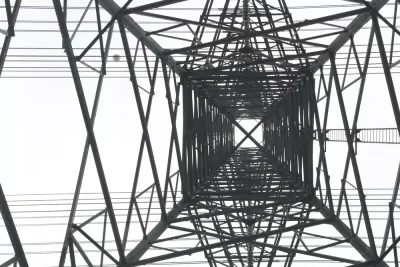The U.S. power system is split into three separate sections with very little overlap. A more seamless infrastructure could deliver benefit, but a new study, still unpublished, is the first to take on the question of how much benefit.

The National Renewable Energy laboratory (NREL) worked with partners to publish a report detailing the costs and the benefits for building an integrated energy infrastructure in the United States.
According to a post sharing the "Interconnections Seam Study," U.S. energy is split into three separate systems, which work independently and share very little electricity. The study, therefore "aims to quantify the value of strengthening the connections (or seams) between the regions to encourage efficient development and utilization of U.S. energy resources" and also to assess "the degree to which interconnection can facilitate a more reliable, resilient, sustainable, and affordable U.S. electricity system."
The research team has published preliminary results [pdf] and has submitted the study to the journal IEEE Transactions on Power Systems.
FULL STORY: Interconnections Seam Study

Planetizen Federal Action Tracker
A weekly monitor of how Trump’s orders and actions are impacting planners and planning in America.

Chicago’s Ghost Rails
Just beneath the surface of the modern city lie the remnants of its expansive early 20th-century streetcar system.

San Antonio and Austin are Fusing Into one Massive Megaregion
The region spanning the two central Texas cities is growing fast, posing challenges for local infrastructure and water supplies.

Since Zion's Shuttles Went Electric “The Smog is Gone”
Visitors to Zion National Park can enjoy the canyon via the nation’s first fully electric park shuttle system.

Trump Distributing DOT Safety Funds at 1/10 Rate of Biden
Funds for Safe Streets and other transportation safety and equity programs are being held up by administrative reviews and conflicts with the Trump administration’s priorities.

German Cities Subsidize Taxis for Women Amid Wave of Violence
Free or low-cost taxi rides can help women navigate cities more safely, but critics say the programs don't address the root causes of violence against women.
Urban Design for Planners 1: Software Tools
This six-course series explores essential urban design concepts using open source software and equips planners with the tools they need to participate fully in the urban design process.
Planning for Universal Design
Learn the tools for implementing Universal Design in planning regulations.
planning NEXT
Appalachian Highlands Housing Partners
Mpact (founded as Rail~Volution)
City of Camden Redevelopment Agency
City of Astoria
City of Portland
City of Laramie




























